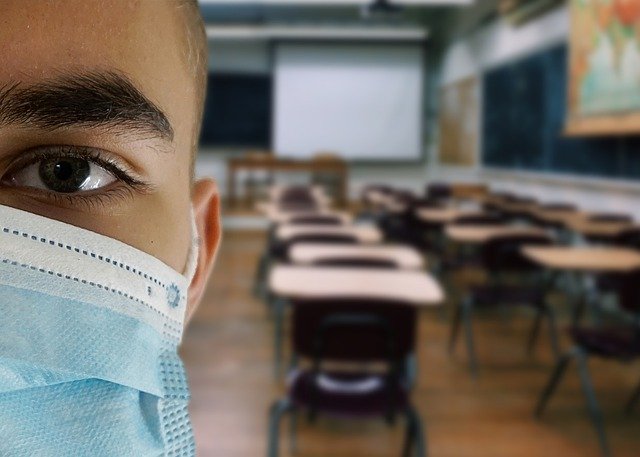As the 2020 – 2021 school year begins, children who normally go through separation anxiety may be even more anxious about going back into the classroom during the pandemic. After all, the beginning of a new school year can be threatening during normal times, but returning into a situation where the coronavirus is likely to be present has raised anxiety levels in many kids and parents.
For parents who live in school districts that offer a choice between virtual or in-person learning, how do you make a decision about which is best for your child? Being safe at home means that kids who have special needs or who learn better in person will lose out on many learning opportunities. Children who are fearful of being in a classroom, however, will struggle more if they have to go back into the school.
All this stress can bring up school refusal in kids, not to mention heightened school anxiety in parents.
Separation Anxiety And Classroom Learning During Covid-19
Sometimes separation anxiety and school refusal begin for a child who has gone through an illness or an emotional trauma, such as moving from one neighborhood to another. In the case of the pandemic, however, illness and death is all we hear about on the news, so a child who may already be inclined to separation anxiety will only worry more.
Parents hardly fare better – in many cases they are having to choose whether to stay home with kids who will be learning virtually (thus, risking their jobs) or sending their child into a possibly contagious environment. Either way, the decision is highly distressing.
Separation Anxiety Definition
If an anxious child shows excessive concern about a separation from a parent or caregiver, or from their home, they might have developed a separation anxiety disorder. In addition, separation anxiety may be present if they show fear about the situation that is inappropriate to their age or stage of development.
Parents who are extreme worriers may show similar symptoms, which could indicate their own anxiety disorder. This is particularly true if they have been overly anxious about the safety of their child during the pandemic.
Emotional and Physical Symptoms Of Separation Anxiety
Children (and parents) who have separation anxiety may show the following symptoms including:
- Constantly imagining worst-case scenarios
- Difficulty going to sleep, fear of the dark, and/or nightmares
- Avoiding activities that result in separation from the parent or child
- Excessive worry about potential harm or illness happening to them
- Children may be clingy, may fear being alone in a room, or may need to see a parent at all times
- Adults may feel anxious about the child’s safety if they aren’t within sight
- Trembling
- Headaches
- Stomach aches and/or nausea
- Vomiting
- Needing frequent trips to the toilet
If a child or a parent exhibits three or more of these symptoms for more than four weeks, they are likely suffering from a separation anxiety disorder.
Separation Anxiety Treatment
While you can’t control the things that happen around you, you can learn how to control your responses and actions. When treating someone for separation anxiety, therapists try to help them learn to identify and change their anxious thoughts. Then, they teach coping methods to help the person react less fearfully to the situations that trigger their anxiety.
Remember – it is natural to worry, but we can learn to keep our fears from spiraling out of control by “naming” and identifying our thoughts. For instance, if your child starts to imagine getting sick in school, and then pictures getting so sick they end up in the hospital, have them practice labeling these thoughts as something less threatening (ie:”That’s just a Bugs Bunny thought hopping around!”). This can often help remind the child that they are just thoughts and we are in charge of how we react to them.
Sometimes, however, self talk still can’t calm the fear and an anxiety disorder can begin. If you suspect that your child is developing an anxiety disorder, it’s important to seek treatment as soon as possible. The longer the anxiety continues, the harder it can be to treat.
Connect with a Child Psychologist at our Children’s Center
For more information about our services to treat mental disorders in children, contact the Children’s Center for Psychiatry Psychology and Related Services in Delray Beach, Florida or call us today at (561) 223-6568.

